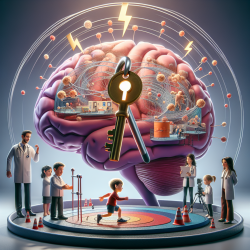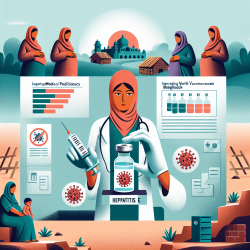Introduction
The development of Israel's emergency mental health system offers valuable insights for practitioners worldwide. The system's evolution, detailed in the research article "Toward the way forward: building an emergency mental health system for Israel," showcases how real-world events have shaped a robust framework for addressing mental health in disaster scenarios. Practitioners can enhance their skills by understanding and implementing the outcomes of this research, or by conducting further studies in this domain.
Lessons from Israel's Emergency Mental Health System
Israel's approach to disaster mental health has been characterized by a commitment to learning from past events. This "lessons learned" strategy has led to a dynamic system capable of adapting to new challenges. Key elements include:
- Multi-tiered Response: The system provides on-site services by local teams, support centers for those in need, and resilience promotion activities through NGOs.
- Training and Innovation: Call takers are trained to identify individuals at high risk for psychological consequences, ensuring timely intervention.
- Funding and Accessibility: Partnerships with the single-payer health insurance system and NGOs have improved access to care, addressing financial barriers that often hinder trauma care.
Implementing Effective Practices
Practitioners can improve their skills by adopting some of the successful strategies from Israel's model:
- Adopt a "Lessons Learned" Approach: Regularly review and adapt mental health strategies based on past experiences and outcomes.
- Focus on Resilience: Develop programs that promote resilience before, during, and after disasters, ensuring a comprehensive approach to mental health care.
- Utilize Evidence-Based Interventions: Implement interventions such as Trauma-Focused Cognitive Behavioral Therapy (TF-CBT) and Prolonged Exposure CBT, which have shown positive outcomes in treating trauma-related disorders.
Encouraging Further Research
While Israel's system offers a strong foundation, there are areas that require further exploration:
- Children's Mental Health: Research is needed to address the specific needs of children in disaster scenarios, ensuring they receive appropriate care.
- Responder Support: Develop comprehensive care models for responders, who face unique challenges and stressors in disaster situations.
- Telehealth and Internet-Based Interventions: Explore the potential of telehealth and online interventions to expand access to care, particularly in remote or underserved areas.
Conclusion
Israel's emergency mental health system serves as a valuable model for practitioners seeking to enhance their skills and improve disaster response strategies. By implementing evidence-based practices and conducting further research, practitioners can contribute to the development of more effective mental health systems worldwide.
To read the original research paper, please follow this link: Toward the way forward: building an emergency mental health system for Israel.










